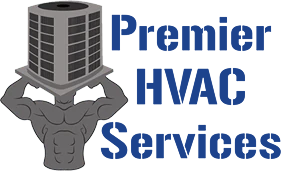What You Need to Know About HVAC Installations
HVAC systems create comfort for you and your family. Managing the temperature in your home can be an arduous task, but modern HVAC installations give you the ability to set it and forget it. They can also last for decades if installed and maintained correctly.
Here are some things to consider when you’re serious about upgrading or purchasing a new HVAC system.
Talk to a Contractor
The HVAC installation process requires more than calling someone up and having it delivered to your home. A technician needs to come to your residence and inspect the space where they’ll install the system. Is there already a system there? Is there enough space? Are windows or walls where they can set up the interior and exterior parts of your new system?
Remember that HVAC units can consist of a furnace, air conditioning unit, or both. Tell the technician your needs, and they’ll determine the most cost-effective and efficient unit for your home.
They should then determine:
Electrical Needs
A new HVAC system will create a draw on your current electrical system, so you’ll need an electrical upgrade. If you are upgrading an existing system, your current electrical situation will probably be fine. In fact, the upgraded system will likely use less power than the old one.
Load
The load is the amount of load your home will put on the unit. Your home’s square footage, insulation type, and window arrangements all factor into your search for the perfect HVAC unit for your living space.
Ductwork
If your upgrade is the same type of system as your old one (gas, for example), your technicians will likely check your ductwork for damage. If you convert from a gas HVAC system to an electrical or a new install, they’ll have to add ductwork to your home.
Cross Compatibility
This is only an issue if you currently have only an air conditioning unit or furnace. A new furnace must be compatible with the current air conditioner and vice versa.
Physical Location
Measurements are necessary to verify the new unit can fit in the desired location. This point largely depends on the type of system you’re installing. Air conditioning units are placed outside, either on the ground or the roof. Furnaces need room to breathe, so they require more space inside the home than their physical size.
HVAC Installation
Once you and the contractor have determined the unit type and where it’ll be installed, the installation process can commence.
Customer Awareness
A technician should explain the process to you. You need to know how long the process will take, the noise level, and how the HVAC team will access your home. Note that the technicians will have to shut off your electricity and gas at some point. Coordinate with them in advance to ensure the timing is convenient for you.
Installation Prep
The first step in HVAC installation is prepping the work area. Electrical and gas supplies get shut off, and workers inspect the job site for asbestos and other hazardous materials.
Next, the HVAC team will remove or add any needed ductwork and get rid of the old system if necessary. They may also need to remove old gas lines or electrical wiring.
Finally, your HVAC team will place your new unit in the proper location and ensure it’s leveled and wired. They’ll also confirm the gas pipes and ductwork are connected and that everything is sealed to withstand the pressures generated by the unit.
Finishing the Job
Now, the team will power on your new HVAC system to verify it works properly. They calibrate everything for optimal performance in your home, check airflow, and give it a final inspection to make sure everything is up to code.
Benefits of HVAC Maintenance
Today’s HVAC systems are equipped with motherboards. These circuit boards constantly verify that everything is fine with your system and may warn you if something isn’t right. Smart thermostats allow you to control the temperature in your home when you are away, and you can shut off the entire system from thousands of miles away.
Other benefits include:
- Reduced utility bill
- Increased comfort level
- Cleaner air
- Better airflow
- Reduced noise level
- Higher efficiency = better environmental impact
HVAC systems get more and more technologically advanced nearly every generation. Although there’s no need to replace your entire system so often, your current system will start to become less efficient when it hits the ten-year mark. Its efficiency will continue to decline every year, and eventually, the benefits will outweigh the repairs.
Premier HVAC Services Technicians are Waiting for Your Call
HVAC systems have to be installed by a professional, and there is no one better in the East Dallas, TX area. Our technicians specialize in installations, repairs, and maintenance of all brands of HVAC systems.
All of our technicians are licensed, highly experienced, and always place customer service as their top priority.
